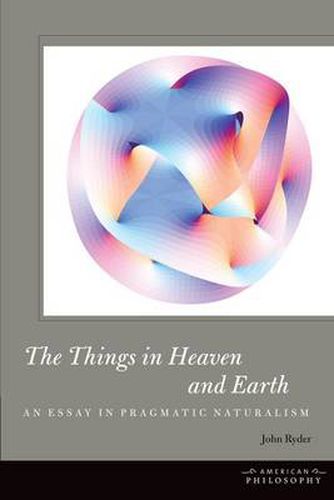Readings Newsletter
Become a Readings Member to make your shopping experience even easier.
Sign in or sign up for free!
You’re not far away from qualifying for FREE standard shipping within Australia
You’ve qualified for FREE standard shipping within Australia
The cart is loading…






The Things in Heaven and Earth develops and applies the American philosophical naturalist tradition of the mid-20th century, specifically the work of three of the most prominent figures of what is called Columbia Naturalism: John Dewey, John Herman Randall Jr., and Justus Buchler. The book argues for the philosophical value and usefulness of this underappreciated tradition for a number of contemporary theoretical and practical issues, such as the modernist/postmodernist divide and debates over philosophical constructivism.
Pragmatic naturalism offers a distinctive ontology of constitutive relations. Relying on Buchler’s ordinal ontology and on the relationality implicit in Dewey’s instrumentalism, the book gives a detailed account of this approach in chapters that deal with issues in systematic ontology, epistemology, constructivism and objectivity, philosophical theology, art, democratic theory, foreign policy, education, humanism, and cosmopolitanism.
$9.00 standard shipping within Australia
FREE standard shipping within Australia for orders over $100.00
Express & International shipping calculated at checkout
The Things in Heaven and Earth develops and applies the American philosophical naturalist tradition of the mid-20th century, specifically the work of three of the most prominent figures of what is called Columbia Naturalism: John Dewey, John Herman Randall Jr., and Justus Buchler. The book argues for the philosophical value and usefulness of this underappreciated tradition for a number of contemporary theoretical and practical issues, such as the modernist/postmodernist divide and debates over philosophical constructivism.
Pragmatic naturalism offers a distinctive ontology of constitutive relations. Relying on Buchler’s ordinal ontology and on the relationality implicit in Dewey’s instrumentalism, the book gives a detailed account of this approach in chapters that deal with issues in systematic ontology, epistemology, constructivism and objectivity, philosophical theology, art, democratic theory, foreign policy, education, humanism, and cosmopolitanism.